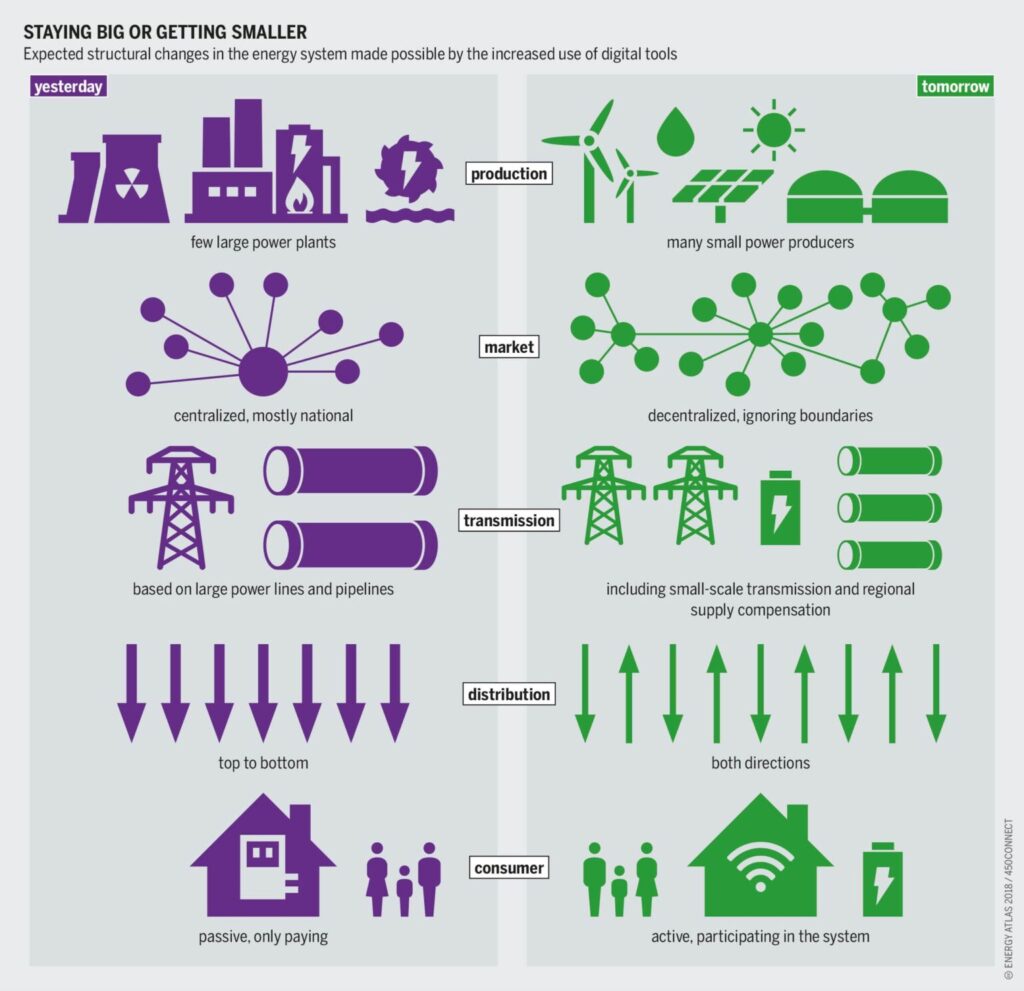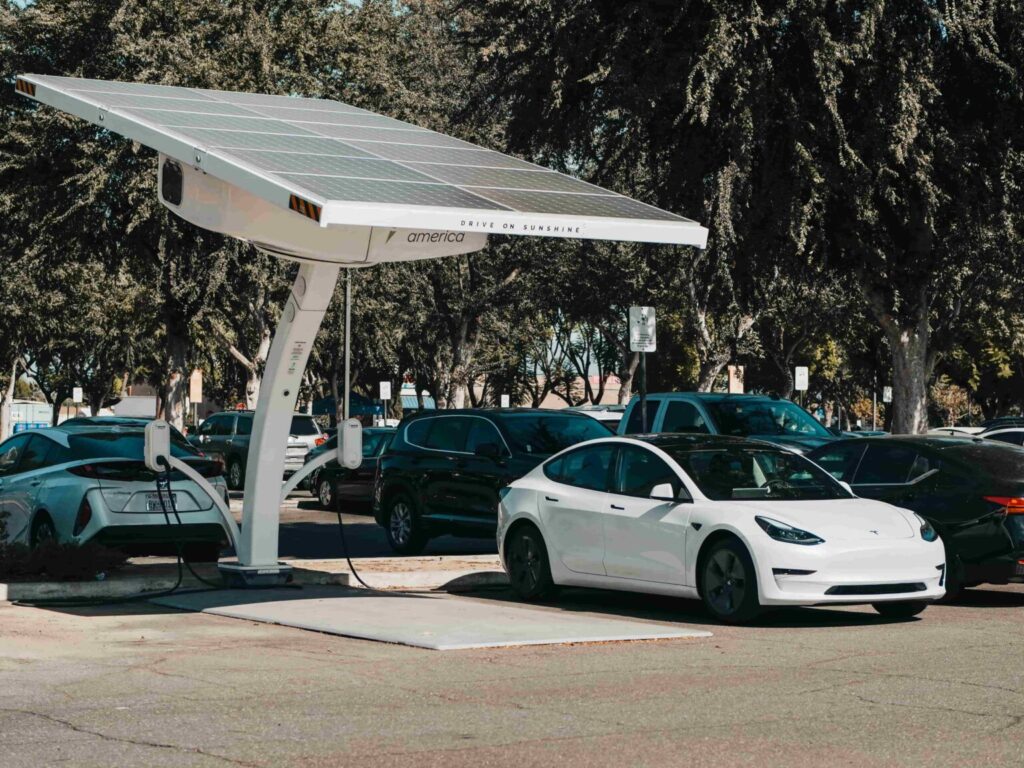Welcome to PowerGenius, where we embark on an exhilarating journey into the future of electrical engineering. In this post, we will immerse ourselves in the captivating realm of emerging technologies and trends that are propelling the future of this ever-evolving field. From groundbreaking advancements in renewable energy to the integration of intelligent systems and beyond, we will delve deep into the boundless possibilities that lie ahead. So, fasten your seatbelts and prepare to witness the awe-inspiring transformation that awaits in the future of electrical engineering.
The Current State and the Path to the Future
Electrical engineering has always been at the forefront of technological advancements, and the future holds even more promise. Rapid developments in various sectors are converging to revolutionize the field. From renewable energy to smart grids, from artificial intelligence to electric vehicles, the stage is set for an electrifying future.
The following are some emerging technologies and trends that will shape the future of Electrical Engineering:
- Renewable Energy Revolution
- Smart Grid and Energy Management
- Internet of Things (IoT) and Connectivity
- Electric Vehicles and Charging Infrastructure
- Artificial Intelligence (AI) and Machine Learning
Lets explore these key areas in detail.
Renewable Energy Revolution
In the future of electrical engineering, the renewable energy revolution is set to transform the way we generate and utilize power. As the world grapples with the urgent need to reduce carbon emissions and mitigate the impacts of climate change, renewable energy sources such as solar, wind, hydro, and geothermal are gaining momentum. These sustainable alternatives offer immense potential for powering our homes, industries, and infrastructure without relying heavily on fossil fuels.

The future of electrical engineering will witness advancements in renewable energy technologies, making them more efficient, affordable, and accessible. Engineers will play a crucial role in developing innovative solutions to harness the power of renewable resources. From designing and optimizing solar panels and wind turbines to integrating energy storage systems and grid management technologies, electrical engineers will be at the forefront of driving the renewable energy revolution. By leveraging the latest technologies and applying their expertise, they will pave the way for a cleaner, greener, and more sustainable future of electrical engineering.
With the increasing demand for renewable energy solutions, electrical engineers will need to stay updated on emerging trends and technologies in the field. By embracing the future of electrical engineering and focusing on renewable energy innovations, they will contribute to the global transition towards a more sustainable energy ecosystem. The future holds immense potential for renewable energy, and electrical engineers will be instrumental in shaping this transformative journey, ushering in an era of clean, reliable, and efficient power generation.
Smart Grid and Energy Management
In the future of electrical engineering, the integration of smart grid technologies and advanced energy management systems is set to revolutionize the way we generate, distribute, and consume electricity. A smart grid incorporates cutting-edge sensors, communication networks, and data analytics to enable real-time monitoring and control of the electrical grid. This intelligent infrastructure offers numerous benefits, including optimized power flow, enhanced grid reliability, and efficient utilization of renewable energy sources. With the future of electrical engineering closely tied to the smart grid, engineers will play a pivotal role in designing, implementing, and managing these advanced systems.

Energy management will be a critical aspect of the future of electrical engineering. As the demand for electricity continues to rise, effective energy management becomes essential to ensure sustainability and efficiency. With advanced analytics and control algorithms, engineers can develop intelligent energy management systems that optimize power consumption, predict demand patterns, and balance energy supply and demand. These systems can also integrate energy storage technologies to store excess energy and release it when needed, improving grid stability and reducing wastage. By leveraging the potential of smart grid and energy management technologies, electrical engineers will shape the future of electrical engineering by creating more sustainable, resilient, and intelligent electrical systems.
Internet of Things (IoT) and Connectivity

The future of electrical engineering lies in the Internet of Things (IoT) and connectivity. IoT enables interconnected devices and systems to communicate and share data, leading to optimized energy consumption, predictive maintenance, and efficient operations. This connectivity allows for the design of smart homes, smart cities, and industrial automation systems that improve efficiency, convenience, and sustainability. Electrical engineers will play a crucial role in harnessing the power of IoT and connectivity to shape a connected and intelligent future.
Electric Vehicles and Charging Infrastructure
In the future, the widespread adoption of electric vehicles (EVs) and the development of robust charging infrastructure will revolutionize transportation and shape the energy landscape. As the world strives to reduce greenhouse gas emissions and combat climate change, EVs offer a cleaner and more sustainable alternative to traditional gasoline-powered vehicles. Electrical engineers will play a crucial role in designing efficient and high-performance electric drivetrains, advanced battery technologies, and intelligent charging systems. The future of electrical engineering will witness breakthroughs in EV technology, such as longer battery range, faster charging, and improved energy storage solutions, making electric transportation more accessible and convenient for individuals and fleets alike.

Alongside the growth of electric vehicles, the development of a reliable and widespread charging infrastructure is vital for their successful integration into our daily lives. Electrical engineers will be at the forefront of designing and deploying charging stations that are efficient, interoperable, and capable of handling the increasing demand for electric vehicle charging. This infrastructure will encompass various charging technologies, including Level 2 AC charging, DC fast charging, and wireless charging, providing flexibility and convenience for EV users. As the future of electrical engineering unfolds, engineers will collaborate with utility companies, governments, and stakeholders to establish a robust charging network that supports the transition to electric transportation, driving us towards a more sustainable and electrified future.
Artificial Intelligence (AI) and Machine Learning
The integration of Artificial Intelligence (AI) and Machine Learning holds immense potential for transforming the way we design, operate, and maintain electrical systems. AI and Machine Learning algorithms can analyze vast amounts of data, enabling engineers to extract valuable insights, optimize energy usage, and improve system performance. These technologies can automate complex tasks, enhance predictive maintenance, and enable real-time decision-making in electrical engineering applications. From optimizing power distribution networks to improving energy efficiency in smart buildings, AI and Machine Learning will play a crucial role in shaping the future of electrical engineering by enabling more intelligent and efficient systems.

With the advent of AI and Machine Learning, electrical engineers will also explore new frontiers in autonomous systems and robotics. These technologies can enable the development of autonomous electrical systems, such as self-driving electric vehicles, smart grid management systems, and intelligent industrial automation. By leveraging AI and Machine Learning, engineers can create systems that adapt, learn, and optimize their performance based on real-time data and changing conditions. The future of electrical engineering will witness advancements in autonomous systems that enhance safety, efficiency, and reliability, paving the way for a more connected and intelligent electrical infrastructure.
Read more about The Impact of AI in Energy Sector in our detailed article.
The Future is Bright
As we step into the future, the possibilities in electrical engineering are limitless. The convergence of emerging technologies, sustainable energy solutions, and intelligent systems will reshape the way we generate, distribute, and consume electricity. Electrical engineers will play a vital role in driving this transformation, innovating, and adapting to the evolving technological landscape. The future of electrical engineering is bright, and it holds the promise of a sustainable and interconnected world.
Stay tuned to our blog for more updates, insights, and advancements in the field of electrical engineering, as we navigate this electrifying journey together.
Also Checkout: Electrical Safety for Engineers: Essential Guidelines and Best Practices

